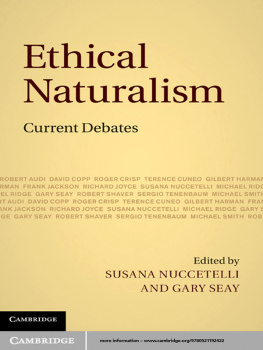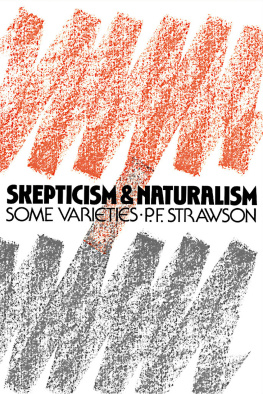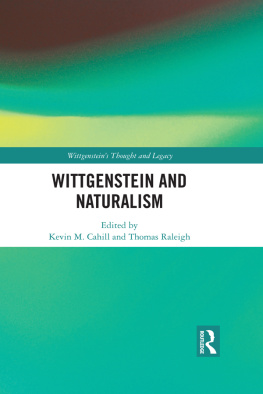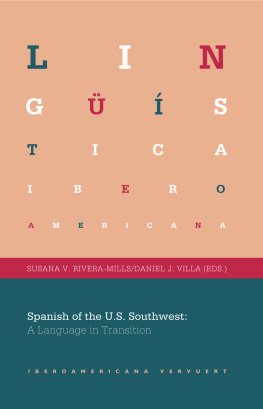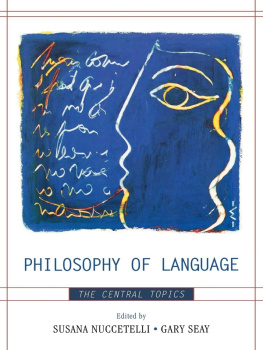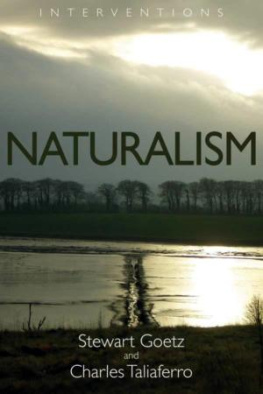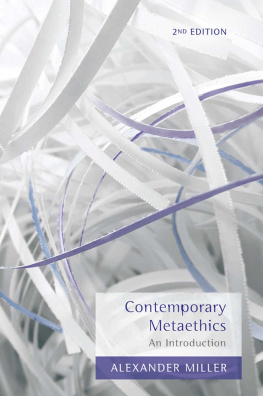ETHICAL NATURALISM
Ethical naturalism is narrowly construed as the doctrine that there are moral properties and facts, at least some of which are natural properties and facts. Perhaps owing to its having faced, early on, intuitively forceful objections by eliminativists and non-naturalists, ethical naturalism has only recently become a central player in the debates about the status of moral properties and facts which have occupied philosophers over the last century. It has now become a driving force in those debates, one with sufficient resources to challenge not only eliminativism, especially in its various non-cognitivist forms, but also the most sophisticated versions of non-naturalism. This volume brings together twelve new essays which make it clear that, in light of recent developments in analytic philosophy and the social sciences, there are novel grounds for reassessing the doctrines at stake in these debates.
SUSANA NUCCETELLI is Professor of Philosophy at St. Cloud State University, Minnesota. She is editor of New Essays on Semantic Externalism and Self-Knowledge (2003) and, with Gary Seay, Philosophy of Language: The Central Topics (2007). She is the author of Latin American Thought: Philosophical Problems and Arguments (2002).
GARY SEAY is Professor of Philosophy at Medgar Evers College, City University New York. With Susana Nuccetelli, he is co-author of How to Think Logically (2007) and Latin American Philosophy (2004), and co-editor of Themes from G. E. Moore: New Essays in Epistemology and Ethics (2007).
CAMBRIDGE UNIVERSITY PRESS
Cambridge, New York, Melbourne, Madrid, Cape Town, Singapore, So Paulo, Delhi, Tokyo, Mexico City
Cambridge University Press
The Edinburgh Building, Cambridge cb2 8ru, UK
Published in the United States of America by Cambridge University Press, New York
www.cambridge.org
Information on this title: www.cambridge.org/9780521192422
Cambridge University Press 2012
This publication is in copyright. Subject to statutory exception and to the provisions of relevant collective licensing agreements, no reproduction of any part may take place without the written permission of Cambridge University Press.
First published 2012
Printed in the United Kingdom at the University Press, Cambridge
A catalogue record for this publication is available from the British Library
Library of Congress Cataloging in Publication data
Ethical naturalism : current debates / [edited by] Susana Nuccetelli, Gary Seay.
p. cm.
Includes bibliographical references and index.
ISBN 978-0-521-19242-2 (hardback)
1. Ethics, Evolutionary. 2. Naturalism. I. Nuccetelli, Susana. II. Seay, Gary.
BJ1311.E84 2011
171.2dc23
2011037727
ISBN 978-0-521-19242-2 Hardback
Cambridge University Press has no responsibility for the persistence or accuracy of URLs for external or third-party internet websites referred to in this publication, and does not guarantee that any content on such websites is, or will remain, accurate or appropriate.
Introduction
This collection offers new perspectives on ethical naturalism, narrowly construed as the conjunction of two core theses. One holds that there are moral properties and facts, the other that at least some such properties and facts are natural properties and facts. Thus understood, ethical naturalism is distinct from, though usually motivated by, philosophical naturalism, a more general metaphysical outlook according to which all there is is the world as conceived by science. Clearly, philosophical naturalism does not entail ethical naturalism, for it is compatible also with eliminativist accounts of morality that either reject the ethical naturalists core theses altogether (as in the error theory) or deflate them substantially (as in quasi-realism). But while eliminativism, especially in its various non-cognitivist forms, was a driving force through much of the twentieth century, ethical naturalism fell out of favor among philosophical naturalists until near the centurys end, perhaps as a result of having faced, early on, intuitively forceful objections such as G. E. Moores open question argument. In the last thirty years, however, increasing doubts about the cogency of those objections, together with some key developments in philosophy of mind and language, have contributed to a widespread renewal of interest in ethical naturalism.
For many philosophical naturalists now, one appeal of ethical naturalism is its core thesis that there are moral properties and facts, especially when read as claiming that such properties and facts are mind - and language-independent . On this, ethical naturalists compete with non-naturalists, who also hold a thesis with a realist gloss, in conjunction with their defining claim that at least some such moral properties and facts are irreducible, non-natural properties and facts. But the latter claim appears to commit non-naturalists to a moral ontology and an epistemology that are at odds with philosophical naturalism. Thus non-naturalism, in spite of its initial influence, has appeared less attractive to naturalistically minded philosophers for whom the very notion of a non-natural property or fact seems metaphysically extravagant. Moreover, although it is now widely accepted that the moral supervenes on the natural, critics doubt that non-naturalists can explain how irreducible moral properties and facts could supervene on natural properties and facts (see Ridge, this volume). These and other apparently compelling objections to non-naturalism are among the factors that have contributed indirectly to the current attraction of ethical naturalism for philosophers inclined toward moral realism.
But the appeal of ethical naturalism is undoubtedly also owing to its apparent ability to accommodate both a general philosophical-naturalist outlook and a representationalist account of moral language. On the one hand, ethical naturalism promises to deliver a non-eliminativist account of morality that might resolve the problem of locating moral value in the world as conceived by modern science. If ethical naturalism is correct, the philosophical naturalists puzzle of how to place morality in the natural order simply dissolves. For then, at least some moral properties and facts are supervenient on, and perhaps identical to, natural properties and facts. On the other hand, ethical naturalism promises to dissolve that puzzle without abandoning another attractive thesis in metaethics, representationalism about moral terms and sentences. For realist ethical naturalism can capture the common intuition that at least some moral terms denote legitimate natural properties, and some moral sentences represent how things are morally. This follows from the ethical naturalists view that at least some moral sentences have truth conditions of the sort countenanced by a robust moral realist theory.


